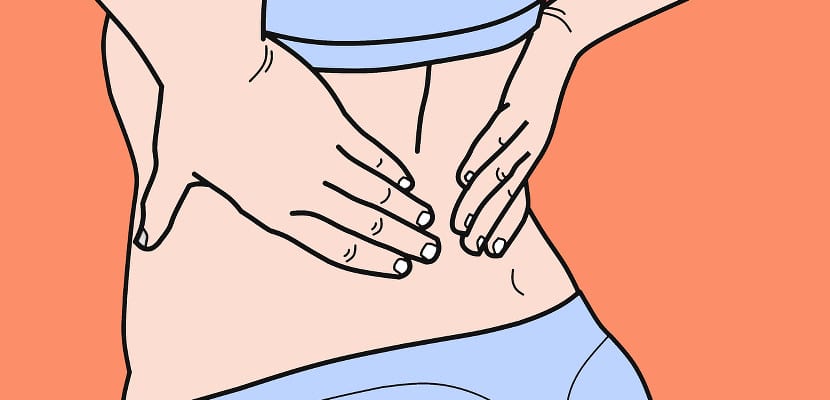
The best known role of vitamin D is that of strong and healthy bones. And is that contributes greatly to calcium absorption by the body
But it also does other jobs, such as absorbing phosphorus. It also represents health benefits, such as reducing high blood pressure and preventing many diseases, although in this last aspect more studies are needed.
Foods with vitamin D
The body makes its own vitamin D when bare skin comes into contact with the sun's rays, although that is not enough. Even though there aren't many, too you have to trust certain foods, as the following:
- Salmon
- Tuna
- Emperor
- Mackerel
- Sardine
- Egg (yolk)
- Mushrooms
- Cod liver oil
- Milk, cereals and other fortified foods
Breakfast is a great daily opportunity to get a good dose of vitamin D, since the food industry adds it to a large number of typical products of this food, such as milk, orange juice, cereals, bread and yogurts. Make sure of this by looking at the product labels.
What are the benefits of vitamin D

To check your vitamin D level, a simple blood test is sufficient. Some physicians consider 20 nanograms per milliliter adequate, while others believe that 30 nanograms must be achieved to obtain the full health benefits of this nutrient.
Strengthening the bones
Getting enough of it throughout your life helps keep your bones strong. And is that one of its roles is to help the body absorb calcium from food. The couple that make up vitamin D and calcium it is especially important in children and the elderly.
Children need it to build strong bones and prevent rickets, a disease that can cause deformed legs and weakness in all bones in general. Helps older people prevent bone fractures. Bones become brittle as they age, but by taking enough calcium and vitamin D they stay stronger, reducing the risk of fracture.
Reduction of high blood pressure
The advantages of the nutrient that concerns us on this occasion in relation to hypertension could be related to the decrease in a hormone called renin, which is believed to play a role in hypertension.
Vitamin D and Multiple Sclerosis
Researchers have found links between sunlight, vitamin D levels, and MS. This nerve-damaging autoimmune disorder is more common away from the sunny equator.. Additionally, one study found a genetic flaw that led to both low vitamin D levels and an increased risk of MS. However, there is not yet enough evidence to point to vitamin D as a treatment or cure for Multiple Sclerosis.
Vitamin D and Diabetes
Eat foods rich in vitamin D could help prevent type 1 and type 2 diabetes, since some studies have found an association between this disease and low levels of this nutrient.
Vitamin D and Cancer
Recent studies suggest that people with higher levels of vitamin D in their blood may have less likely to develop cancer colon, prostate and chest than the rest.
Vitamin D and Heart Disease
Low levels of this vitamin have been linked to an increased risk of heart attack, stroke and heart disease. However, it is not clear whether increasing your intake of vitamin D reduces heart risks or how much is needed. Instead, what we do know is that very high levels can damage blood vessels and the heart.
Vitamin D and Dementia
Vitamin D could play some kind of role in dementia. Studies have been conducted that indicate its deficiency as one of the possible culprits for memory failures, attention and reasoning in older people.
What are the symptoms of a lack of vitamin D

Since there are few food choices and sunlight carries more risks than advantages, many people suffer from a lack of vitamin D.
Generally, having low levels of this vitamin does not cause any symptoms, unless it is a severe deficiency. In this case, signs include muscle weakness, hormonal problems and bone pain. This syndrome is known as osteomalacia and is characterized by softening of the bones.
When this severe deficiency occurs in children, the symptoms of soft bones also occur. It can also lead to rickets and skeletal problems.
There are factors that increase the risk of developing a vitamin D deficiency, including the following:
- Have more than 50 years
- Reside in a not sunny region
- Dark skin
- Overweight, obese, or having undergone gastric bypass surgery
- Milk allergy or lactose intolerance
- Liver or digestive diseases, such as Crohn's disease or celiac disease
If you need to increase your vitamin D levels, your doctor may prescribe supplements.
How Much Vitamin D Do I Need?

Adults are recommended to reach 600 IU (international units) of vitamin D per day. In the case of those over 70 years of age, their needs are greater, amounting to 800 IU.
Although taking higher doses is not harmful, exceeding 4.000 IU per day can indeed pose health risks, according to experts. In very high doses, it can raise the level of calcium, causing damage to the blood vessels, the heart and the kidneys.
Regarding the one obtained from the sun, if it is taken for a long time, there comes a point where the body stops manufacturing more, which is why there is no danger in that sense. However, one must be careful with overexposure, as it increases the risk of skin cancer. In any case, remember to always use a protector.
